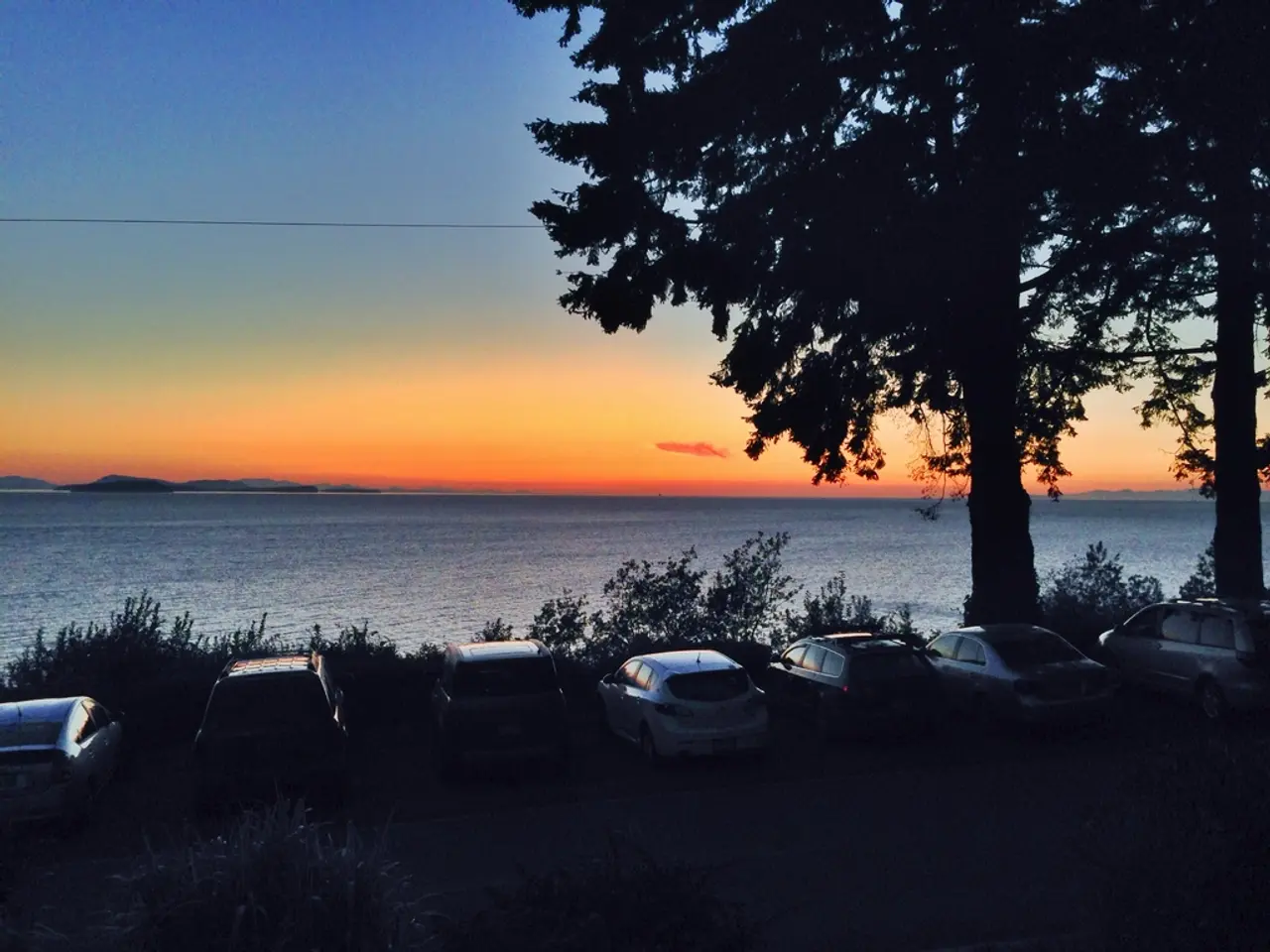Vacation Fad: 'Coolcation' - Opportunity for the Majestic North? - "Northern regions could potentially benefit from the popular travel trend "Coolcation" to increase tourism"
The "coolcation" trend, a response to increasingly frequent heatwaves and climate change, is gaining traction as tourists seek cooler destinations for their vacations. This trend involves traveling to regions with milder temperatures and fewer crowds, offering a more sustainable and comfortable vacation experience.
Key Regions
The trend is particularly popular in Northern and Central Europe, with countries like Sweden, Norway, Scotland, Finland, Slovenia, and Switzerland being favored for their cooler climates and stunning natural landscapes. Iceland, known for its dramatic landscapes and natural wonders, is another top choice for those seeking a cool and adventurous getaway.
The North Sea Coast: A Hidden Gem
While Mecklenburg-Vorpommern and Lower Saxony in Germany are not highlighted as major coolcation destinations, they still offer temperate climates and lush landscapes that could appeal to travelers looking for cooler summer experiences. These regions are known for their beautiful coastlines, forests, and lakes, which could attract tourists seeking quieter, more sustainable vacations.
Embracing Sustainability and Crowd-Free Destinations
A key aspect of the coolcation trend is not only the climate but also the desire for less crowded destinations and sustainable travel options. This aligns with the potential for Mecklenburg-Vorpommern and Lower Saxony to attract tourists who prefer quieter, more natural environments.
Promoting the North Sea Coast
The Tourism Agency North Sea (Tano) in Wilhelmshaven has been running advertisements during Germany's heatwaves, enticing locals with the promise of a cooler vacation at the North Sea. The tourism industry has coined the term "Coolcation" for relaxation and nature experiences without heat risk.
Future Prospects
Tourism experts see potential in attracting more vacationers to the relatively cooler north for summer holidays due to climate change. The Ministry of Economics sees the "Coolcation" trend as an opportunity to attract more international tourists to the northeast. Holger Heymann, chairman of the Lower Saxony Tourism Association, suggests that the state should promote "Coolcation" more strongly as a marketing strategy.
Michael Succow, a conservationist, believes that Mecklenburg-Vorpommern, with its large natural spaces and "cool north," will gain significance for travelers from the south due to climate change. Kai Otto, CEO of PTI Panoramica, believes that a significant increase in incoming tourists from southern regions can be generated due to the "Coolcation" trend.
In 2024, there were around 983,000 foreign overnight stays in Mecklenburg-Vorpommern, accounting for about three percent of the total around 32.9 million overnight stays. With the growing popularity of coolcations, this number could significantly increase in the future.
In conclusion, while Mecklenburg-Vorpommern and Lower Saxony are not explicitly mentioned as primary coolcation destinations, their temperate climates and natural beauty make them potentially attractive alternatives for tourists seeking cooler summer experiences. As the coolcation trend continues to grow in response to climate change, these regions might benefit from increased interest in sustainable and less crowded vacation spots.
Read also:
- International cooperatives associated with OCOP (One Commune One Product) are actively exploring strategies to access and penetrate foreign markets.
- Federal health clinics in Maine seek restoration of withheld Medicaid financing, filing a lawsuit against the Trump administration over funding reductions.
- Tezos' Etherlink Broadens Its Gaming Offerings with Incorporation of Pikes Arena and Cricket Champions
- Depakote Cost in 2025: Discounts and Additional Savings Options





